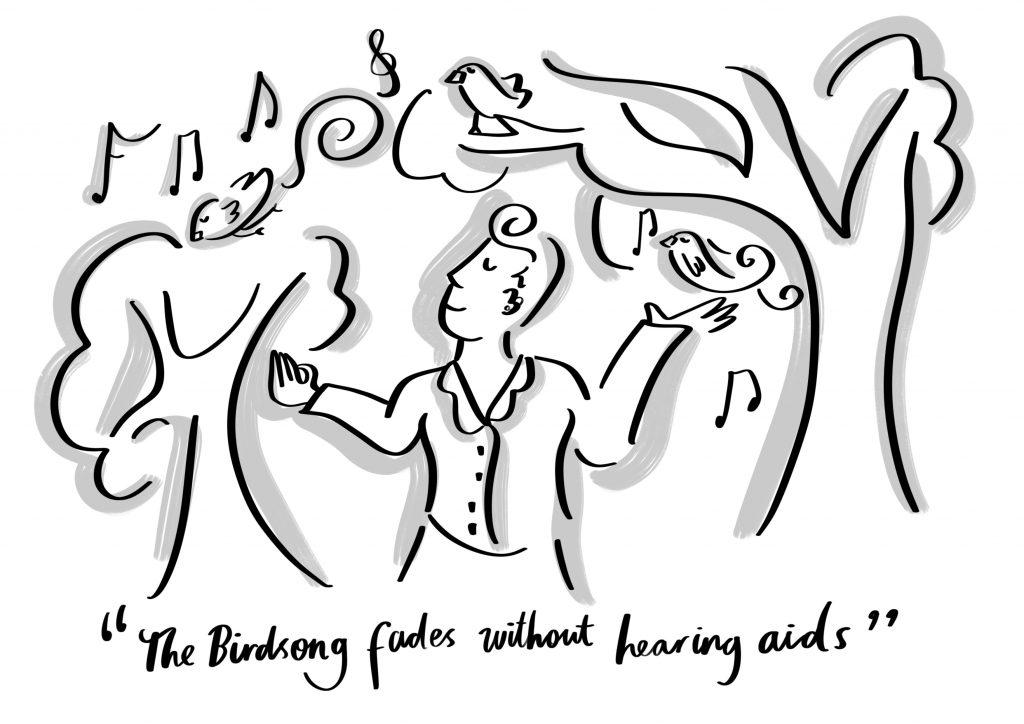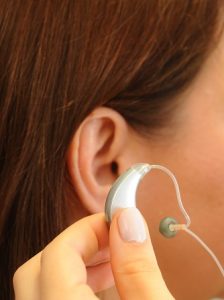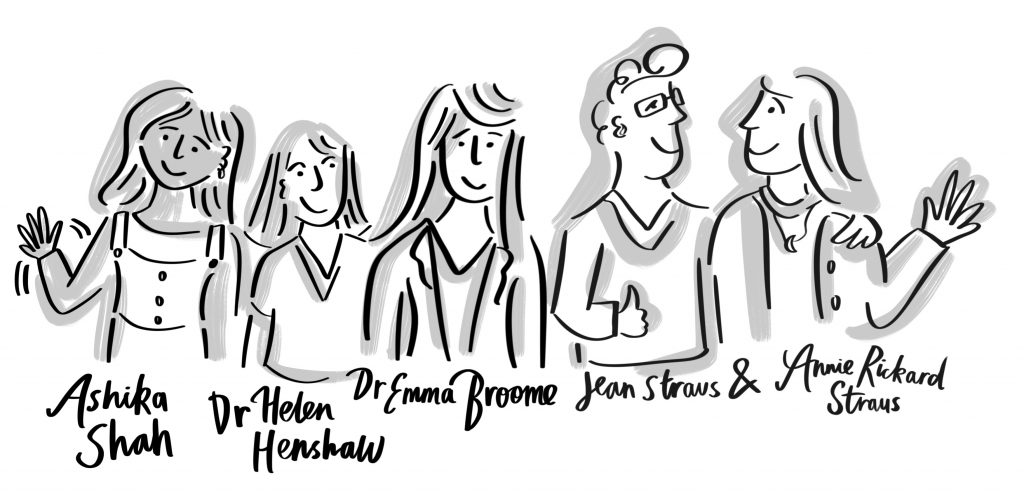June 22, 2021, by Adele Horobin
The use of hearing aids by adults with hearing loss, how should we define and measure success?
 Jean Straus uses hearing aids to help with her hearing. As a member of the public with first-hand experience of hearing loss, Jean is a valued member of the research team, providing a unique perspective, ensuring the research is designed around patient needs. Jean would like to share the following with you.
Jean Straus uses hearing aids to help with her hearing. As a member of the public with first-hand experience of hearing loss, Jean is a valued member of the research team, providing a unique perspective, ensuring the research is designed around patient needs. Jean would like to share the following with you.
‘The use of hearing aids by adults with hearing loss, how should we define and measure success?’ This is a question you’d think would be easy to answer. Right? Wrong.
But researchers are currently working on this question, only to discover there are some big stumbling blocks to finding an answer: for example, how do we define a process of using hearing aids when we all use them differently? How do we measure something so unclear? Researchers sometimes equate the number of hours people wear their hearing aids with successful use, but do hours really equal success? In addition, how would they know if we do or we don’t?
I believe that until now it works like this: If you have a hearing aid, and are having a check up, you’ll recall that moment when your audiologist tells you they’d like to look at your hearing aids. They then connect them up with a computer, after which they tell you (if you can hear them now without your hearing aids) that you’ve used your hearing aids this amount of time, average this much daily, since your last appointment, telling you which programmes you’re using the most. You might wonder if you’re being judged for how much or how little you wear them. Indeed I’ve been told that I wear mine a lot. But there’s more to this little test than just feeding back to the patient.
 Let’s look at how data works. Once you’ve had your hearing aids looked at, the information the audiologist recorded goes into a huge pool, cataloguing how much people wear their hearing aids out of, I imagine, their estimated waking hours. They might not turn their hearing aids off at night, and this will factor into the data taken from our hearing aids.
Let’s look at how data works. Once you’ve had your hearing aids looked at, the information the audiologist recorded goes into a huge pool, cataloguing how much people wear their hearing aids out of, I imagine, their estimated waking hours. They might not turn their hearing aids off at night, and this will factor into the data taken from our hearing aids.
And that, it turns out, is the information that researchers have been putting together to measure success. This sounds crude to me. Researchers Dr Helen Henshaw, Dr Emma Broome and medical student Ashika Shah agree, and want us, those who have/don’t have and use/don’t use our hearing aids to give them a better feel for how we benefit, or not, from our hearing aids. To this end we’re creating three online events comprising a two-part survey, and a workshop with people like us, whereby we brainstorm together, telling our stories openly via questions and on story boards. We’ll have the illustrator Annie Rickard Straus (yes, there is a connection) live illustrating the outputs of the survey, at both ends of the workshop, resulting in illustrations of the top priority ‘successes’. The hope is that by using a relaxed and creative format, we can develop a better understanding of what matters most to us. Only then can we take our research further, towards understanding what we need to make our hearing aid experience work for us and how we might best measure that.
I have many of my own measures, of course, but one is 100% accurate. I go outside on a spring morning for a walk in the woods, starting off without using my hearing aids. Then I stop and insert them. Instantaneously I am within a world of birdsong. I’m sure I’m not alone in having a measure. Would you be willing to discuss yours, by signing up to take part in our research?
Here’s how you can…
To register your interest in the study, please contact Emma.broome1@nottingham.ac.uk.
Ashika joins the team to deliver this research project via the INSPIRE INSRIP initiative:
“INSPIRE is a nationwide programme supported by the Wellcome Trust to engage medical students in research.” https://www.inspirenottingham.co.uk/overview
“INSRIP is a new initiative which gives interested students the opportunity to do a research project with renowned academics at the University of Nottingham.” https://www.inspirenottingham.co.uk/insrip
 Thank you
Thank you

Brilliant stuff! Please keep posting the journey of your research
Thank you Nicole!